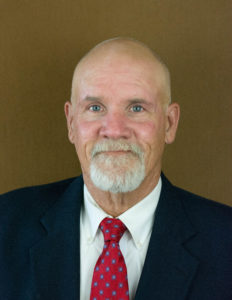So you want to be in the oil and gas business. Good for you. Be prepared for sleepless days and nights. Regardless if you are an executive, contractor, company man, roughneck, pumper or even a safety professional, sleep or quality rest is often a commodity that is not in abundance in our industry. How is that related to the oilfield? Here we go!
If there were ever times when I wanted to take a deep long nap and was not able to keep my eyes open, it was usually at a safety meeting. Lights are dimmed ever so slightly, and a safety guy stood at the front with his little laser pointer. Background music would be playing some obsolete riff from the 1960s. Man, if I could only recreate that scenario when I was in bed at night!
OSHA and MSHA recently came out with a report stating that sleep deprivation and lack of downtime can be directly related to accidents and safety performance! You think? I applaud their recent study findings; however, anyone that is in the business knows that quality rest—and downtime with the family—is, at best, merely adequate.
For as long as I’ve been in the oilfield, since the summer of 1971, I’ve known these truths. And it took me less than a week to figure it out. OSHA and I “broke out” in the same year. Regardless of which field or job within the oil and gas business, blue collar or white collar, engineers to floor hands, it makes no difference. I feel that oil and gas is an industry that demands hard working, fast paced, and intuitive personnel. This is true just based on this industry’s demands of the ebb and flow, ups and downs. It is a pressure-filled industry, figuratively and literally, that requires characteristics of a pioneer. The industry is always changing, requiring the ability to adapt. Did I mention there are sleepless nights and long days? When you are at work, you are thinking about home. When you are at home, you are thinking about work. That is how we roll in the oilfield. Always thinking of ways to improve. Only when you are on a family trip, to the Grand Canyon, do you feel like “all you want to do” is take a nap.
Granted there are exceptions to all broad sweeping statements. Challenge me if I am wrong, but whether you’re talking about two days off or a week’s vacation, you find that it takes a day or two to forget about work, and a day or two to mentally prepare to go back to the grind, leaving little or no time in the middle to fully relax and perhaps reacquaint yourself with the family.
At work it is hard to focus on the task at hand when you are stressed or tired. Good judgment is not in abundance and decision making is impaired, regardless of experience or training. We have been trained to adapt, overcome, and fight the urge to rest.
I know of numerous scenarios where a wireline crew from the Midland/Odessa area is working in Southeast New Mexico. It’s at best a two-hour drive, to and from. By the time a crew prepares to go to work, it is 30 minutes’ minimum of prep. When leaving the site to return home, the same applies. This is working on a 12-hour shift. So now we are at 16 hours. One person does the driving while the other three sleep, and that’s assuming there are no traffic jams or bad road conditions. Sleep in and of itself is great when you are dog tired, except for the person behind the wheel. That is a huge opportunity for a wreck. So we have established that fatigue is a factor. So what are the ways to combat the onslaught of fatigue?
Here are some applicable hints but they do require self discipline. Eat healthy. Light meals at work and at home. Exercise gets the heart going and increases mental acuity. When sleeping at night, utilize background noise if it relaxes you. Alcohol might get you to sleep faster but the after effects will inhibit performance of the mind and body. Background music helps some people sleep. Distractions, such as the television, outside activities, etc., are counter-productive. Rainfall might even help, but we live in West Texas and Southeast NM, so rain is not something we can rely on. Proper planning prevents poor performance during work and at home.
Make no mistake about it, good rest and eating habits require planning, and it does lend itself to fewer accidents. Most people in the oil and gas business are encouraged to power through any obstacle that it may present. You also should know your limits. There is still “stop work” authority if fatigue is a factor. It is up to you to know your limits. Being tired really won’t kill you. But making poor decisions to power through to get it done does create more opportunities for accidents.
Regardless of how I try to create awareness, it is up to the individual to decide to stop and live as opposed to the alternative. I hope each person who does read this, gives these thoughts the credence they deserve of how important proper rest is. Now get some rest.
As usual, it is not how many hits you have in baseball that counts. It is how many times you reach home safely.
—Dusty
Dusty Roach is a safety professional based in Midland. He is also a public speaker on subjects of leadership and safety, and he maintains a personal website at dustyroach.com.










